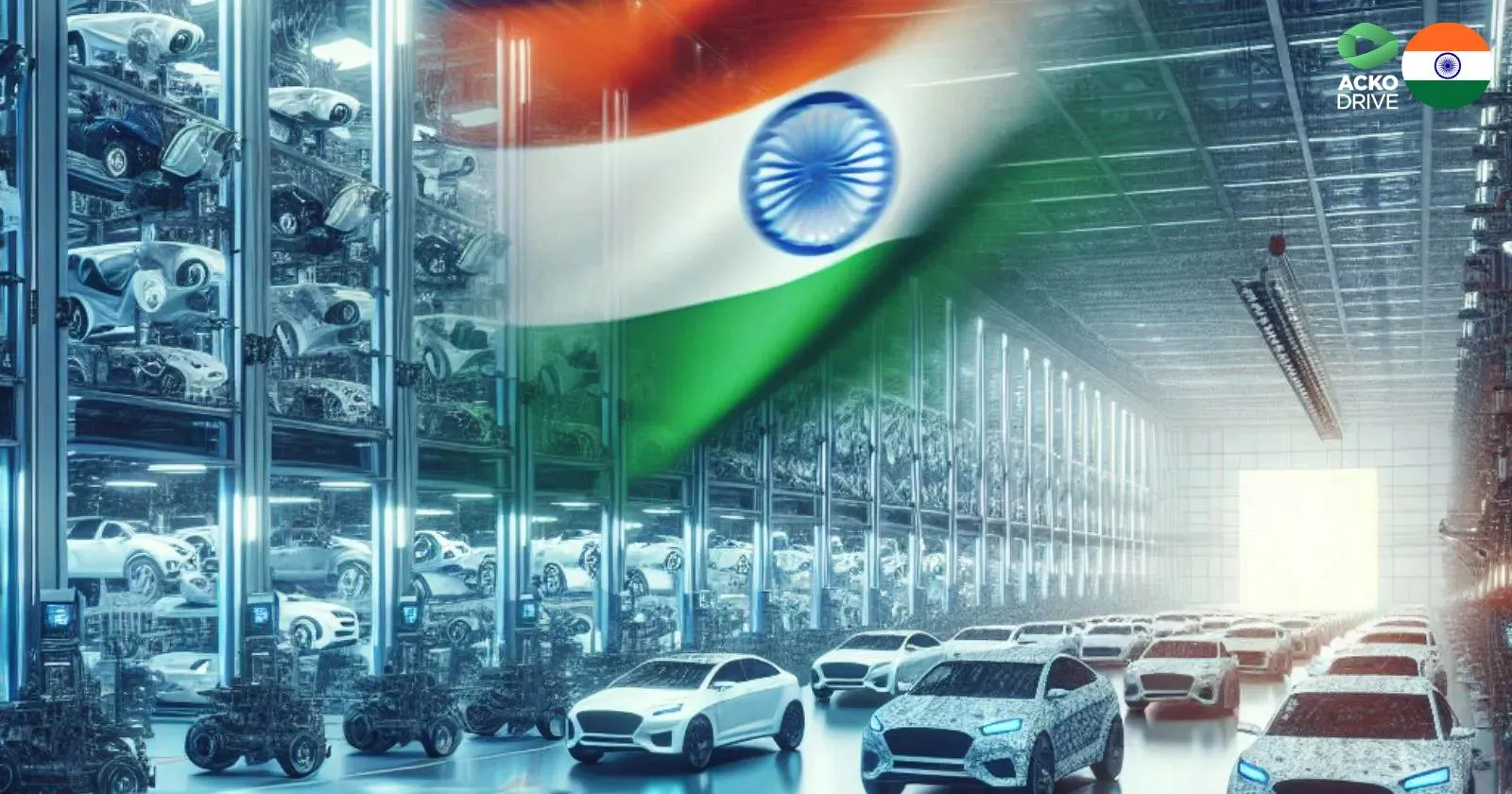As India celebrates its 79th Independence Day, the nation's journey from colonial subjugation to a global tech powerhouse stands out vividly.
Today, Global Capability Centres (GCCs) of international carmakers in India symbolise this self-reliance by driving cutting-edge automotive tech that influence vehicles worldwide.
With over 55 automotive GCCs employing around 100,000 engineers, these centres are innovation engines which contribute to electric vehicles (EVs), autonomous driving, and software-defined vehicles (SDVs).
This Independence Day, we spotlight how these GCCs bolster India's economic independence while shaping the future of global mobility.
Automotive GCCs in India
India hosts a robust ecosystem of automotive GCCs, primarily concentrated in Bengaluru, Pune, Hyderabad, Chennai, and the National Capital Region.
These centres, established by original equipment manufacturers (OEMs), auto component suppliers, and tech firms, deliver end-to-end solutions across engineering research and development (ER&D), information systems and IT (ISIT), shared services, and innovation.
ER&D accounts for 36 per cent of their activities, focusing on product design, testing, simulation, and prototyping for power electronics, infotainment, and embedded systems.
ISIT (28 per cent) handles data analytics, IoT, cloud computing, and cybersecurity, while innovation (20 per cent) drives advancements in advanced driver-assistance systems (ADAS), connected vehicles, digital twins, and hydrogen-powered mobility.
Since 2021, new entrants like Daimler Trucks, Switch, and Webasto have established operations, while existing ones such as ZF, Hella, and BorgWarner have expanded.
This growth aligns with the government’s push for Atmanirbhar Bharat (self-reliant India), generating revenues exceeding USD 3 billion (approximately ₹25,000 crore) in FY23 and projecting 300,000 jobs by FY30.
Mercedes-Benz Research and Development India
Mercedes-Benz Research and Development India (MBRDI), the largest R&D centre outside Germany, operates in Bengaluru and Pune with over 9,000 employees.
Established in 1996, MBRDI has been instrumental in developing the Mercedes-Benz User Experience (MBUX), an AI-powered infotainment system featuring voice control, gesture recognition, and augmented reality navigation.
Engineers at MBRDI trained neural networks using millions of images for precise gesture detection, enabling personalised driving experiences in models like the A-Class and EQC.
MBRDI also advances SDVs through the Mercedes-Benz Operating System, thereby integrating cloud platforms for in-car apps and analytics.
In sustainability, the centre's 'Sustainability Garage' initiative includes a Climate Tech Incubator in Hyderabad and tools for carbon footprint optimisation in software. Collaborations with partners like KPIT Technologies accelerate EV battery management and ADAS, contributing to global models like the Vision EQXX with its 1,000 km range.
BMW Group’s TechWorks India
BMW's TechWorks India is a joint venture with Tata Technologies in Pune and Bengaluru. This collaboration, announced in 2024, focuses on automotive software and business IT solutions for BMW's premium vehicles.
Key contributions include developing code for the Neue Klasse EV platform, set to launch in 2025, emphasising software-defined architecture with over-the-air updates, enhanced user interfaces, and Level 3 autonomy.
Indian engineers are crafting infotainment systems and automated driving technologies, boosting the Neue Klasse's 30 per cent longer range and faster charging.
This JV taps into India's engineering talent for global SDV development, mirroring BMW's Nanjing IT centre in China but localised for efficiency. Partnerships with startups further enhance connectivity and battery systems, aligning with BMW's sustainability goals.
Volvo Cars India
Volvo Cars India’s Bengaluru centre advances truck, bus, and passenger vehicle technologies, focusing on electrification and autonomous systems. Partnering with HCLTech, Volvo leverages Indian engineering for global fleet solutions, enhancing EV platforms and ADAS.
Then, Polestar, the luxury EV arm of Volvo, collaborates with Infosys to establish a software development hub in Bengaluru. This centre supports Polestar’s global EV lineup, focusing on software for infotainment, connectivity, and battery management, aligning with its sustainability goals.
Hyundai Motor India and Hyundai Mobis
Hyundai's GCC in Hyderabad and Chennai employs thousands in R&D for EVs and connected technologies. The centre contributes to global models by developing battery management systems (BMS) and infotainment for vehicles like the Ioniq series.
Hyundai Mobis, its component arm, focuses on ADAS and autonomous features, integrating IoT for real-time data analytics.
Stellantis India
Stellantis, parent of Jeep and Citroen, operates a digital hub in Hyderabad, innovating in software for connected vehicles and electrification. Contributions include cloud-based platforms for over-the-air updates and cybersecurity, supporting global EV transitions.
Ford Motor Company
Many of you will be surprised to learn that Ford still exists in India. The company’s Chennai and Bengaluru GCCs, despite manufacturing exits, employ over 12,000 professionals, making it the company’s largest globally.
Starting in 1998 with 20 staff, the Chennai centre now handles data analytics, manufacturing, and product engineering, including digital twins for global plant optimisation. The Bengaluru office, opened in 2025 at Manyata Tech Park, focuses on cybersecurity, DevSecOps, and AI, with plans to onboard 2,000 more employees by 2029.
Renault India’s Design Centre
Renault’s Chennai Design Centre, renovated in 2024, is the company’s second-largest globally. It drives vehicle design and exports concepts to international markets, leveraging Indian creativity for global models.
Tech Giants in Automotive Space
Tech companies like Intel, AMD, NVIDIA, and Uber contribute significantly to India’s automotive GCC ecosystem. Intel’s Bengaluru centre develops AI chips for ADAS and autonomous driving, while AMD focuses on embedded systems for vehicle connectivity.
NVIDIA’s Pune and Bengaluru hubs advance AI for autonomous vehicles and infotainment. Uber’s Hyderabad GCC enhances mobility solutions, integrating ride-sharing tech with automotive connectivity.
Two-Wheeler Innovators
Two-wheeler companies like Hero MotoCorp and TVS Motor leverage GCCs in Chennai and Bengaluru for EV and connected bike technologies.
Hero’s R&D centre in Jaipur develops EV platforms, while TVS collaborates with tech firms for smart mobility solutions, contributing to global two-wheeler innovation.
Self-Reliant Future in Automotive Industry
India's automotive GCCs exemplify how the country has achieved technological sovereignty by transforming from a back-office player to a co-creator of global innovations.
By harnessing local talent and ecosystems, these centres not only cut costs but also accelerate advancements in EVs, ADAS, and sustainable mobility, positioning India as a vital link in the worldwide automotive chain.


